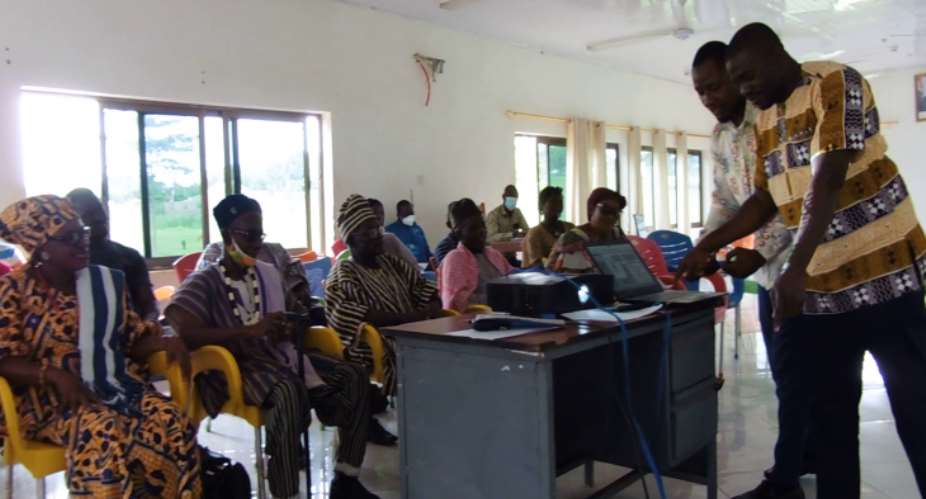Issues of teenage pregnancies and malnutrition have been a challenge in most rural communities in Ghana.
It is against this backdrop that, a multi-stakeholder engagement has been organized on Adolescent Sexual Reproductive Health Rights, Safeguarding and Nutrition, in the Nabdam District of the Upper East Region.
It was organized by Rise Ghana, the implementing local Non-Governmental Organization, operating in the Upper East Region, in the areas of health, women economic empowerment, and child protection, in collaboration with the Ghana Health Service under the sponsorship of the United Nations Children’s Fund (UNICEF) Ghana.
In an interview with this reporter, the Project Officer of Rise-Ghana Abubakari Abdul-Fatawu said Rise-Ghana study in the Nabdam District showed that issues of Adolescence Sexual Reproductive Health Rights (ASRHR) and Malnutrition is on the ascendency, and therefore designed a strategy to help reverse the trend.
He stated that the stakeholder engagement was aimed at understanding issues around ASRHR, nutrition and matters relating to ASRHR. He noted that as stakeholders, they are looking at what can be done to break the barriers in order to scale down the menace. He added that the stakeholders were to deliberate and come out with their practical experience of ASRHR and its related issues.
The Nabdam District Adolescent Health Focal Person, Dennis Asolmia indicated that from 2019 to date, Rise-Ghana has followed the trend of teenage pregnancies in the Nabdam District, and has been collaborating with stakeholders to share strategies that can help reduce the phenomenon and the nutritional effect (anaemia in pregnancy which is one of the major problems in the District).
Mr Asolmia said though the Nabdam District witnessed a drop in teenage pregnancy to 15 percent in 2019, it is nothing to write home about given the current development on the ground. He added that the GHS intends stakeholders buy into the findings and interventions of Rise-Ghana, and incorporated them in their respective routine ASRHR campaigns.
Participants were drawn from the Traditional Authorities, clergy, Ghana Education Service (GES), District Children’s Department, Representatives of the Ghana Health Service, and some reps of adolescent and school children.





 Former Kotoko Player George Asare elected SRC President at PUG Law Faculty
Former Kotoko Player George Asare elected SRC President at PUG Law Faculty
 2024 elections: Consider ‘dumsor’ when casting your votes; NPP deserves less — P...
2024 elections: Consider ‘dumsor’ when casting your votes; NPP deserves less — P...
 You have no grounds to call Mahama incompetent; you’ve failed — Prof. Marfo blas...
You have no grounds to call Mahama incompetent; you’ve failed — Prof. Marfo blas...
 2024 elections: NPP creates better policies for people like us; we’ll vote for B...
2024 elections: NPP creates better policies for people like us; we’ll vote for B...
 Don’t exchange your life for wealth; a sparkle of fire can be your end — Gender ...
Don’t exchange your life for wealth; a sparkle of fire can be your end — Gender ...
 Ghana’s newly installed Poland train reportedly involved in accident while on a ...
Ghana’s newly installed Poland train reportedly involved in accident while on a ...
 Chieftaincy disputes: Government imposes 4pm to 7am curfew on Sampa township
Chieftaincy disputes: Government imposes 4pm to 7am curfew on Sampa township
 Franklin Cudjoe fumes at unaccountable wasteful executive living large at the ex...
Franklin Cudjoe fumes at unaccountable wasteful executive living large at the ex...
 I'll 'stoop too low' for votes; I'm never moved by your propaganda — Oquaye Jnr ...
I'll 'stoop too low' for votes; I'm never moved by your propaganda — Oquaye Jnr ...
 Kumasi Thermal Plant commissioning: I pray God opens the eyes of leaders who don...
Kumasi Thermal Plant commissioning: I pray God opens the eyes of leaders who don...
